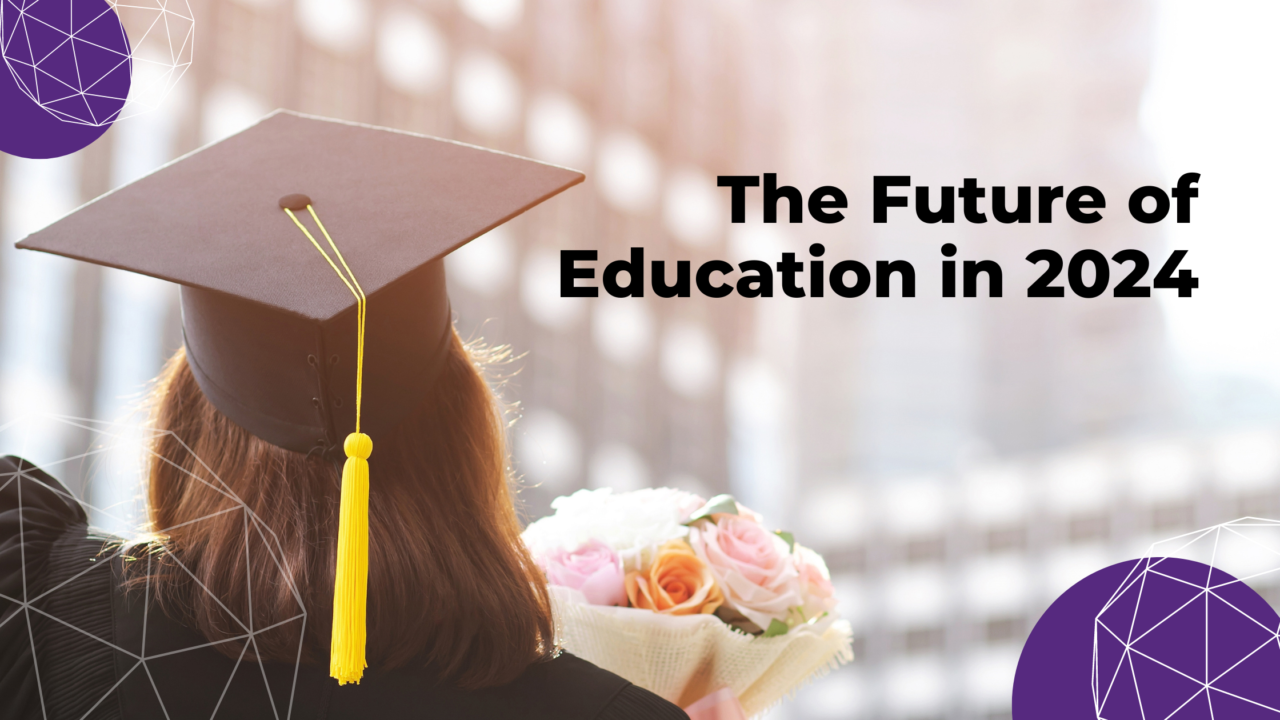As we move into 2024, the education sector is rapidly transforming due to technological advancements, evolving student needs, and the increasing demand for personalized learning. With EdTech businesses booming, the future of education promises to be more inclusive, flexible, and tech-driven. In this blog, we’ll explore key trends, solutions, and innovations shaping education in 2024, and how a mobile app for EdTech businesses can enhance these learning experiences.
1. AI-Driven Personalized Learning
Artificial intelligence (AI) continues to revolutionize the education sector. AI-powered tools are making it easier for educators to offer personalized learning experiences by analyzing students’ progress and tailoring educational content to their specific needs.
According to a recent report, the global AI in education market is expected to grow from $3.68 billion in 2023 to $24.44 billion by 2030, showcasing the rapid adoption of AI in learning environments. A mobile app for EdTech businesses with built-in AI functionalities can help personalize learning on the go, ensuring students can access tailored content anytime, anywhere.
2. The Metaverse and Immersive Learning
In 2024, the metaverse is rapidly becoming a central player in education, offering immersive experiences through virtual reality (VR) and augmented reality (AR). According to a recent study, the global market for immersive technology in education is projected to reach $12.6 billion by 2028, reflecting the rising demand for hands-on, experiential learning tools.
By incorporating these features into a mobile app for EdTech businesses, companies can provide accessible and engaging learning experiences that transcend physical classrooms.
3. Hybrid Learning Models
The popularity of hybrid learning models—combining in-person and digital learning—has surged post-pandemic. A survey from McKinsey found that 38% of higher education institutions expect to adopt hybrid learning as the standard mode of teaching in the future. This model offers flexibility for students while providing structured learning environments.
A mobile app for EdTech businesses tailored for hybrid learning can seamlessly integrate digital tools with physical classroom experiences, providing students with a versatile platform to learn both online and offline.
Key Education Trends and Statistics for 2024
| Trend | Description | Market Growth/Stat |
|---|---|---|
| AI-Driven Personalized Learning | Adaptive learning powered by AI, providing personalized content. | AI in education market to grow from $3.68B in 2023 to $24.44B by 2030. |
| Metaverse and Immersive Learning | Use of VR and AR to create engaging, hands-on learning environments. | Immersive tech in education to reach $12.6B by 2028. |
| Hybrid Learning Models | Combination of in-person and online learning for greater flexibility. | 38% of higher education institutions plan to adopt hybrid models. |
| Skills-Based Learning | Focus on practical skills over traditional degrees through micro-credentials. | 42% of employers prioritize skills over degrees. |
| Blockchain for Credentials | Secure storage and verification of academic records using blockchain. | Blockchain in education to reach $1.26B by 2024. |
| Mental Health and Well-being | Increased focus on emotional support and mental health resources for students. | 60% of students feel overwhelmed by academic demands. |
4. Skills-Based Learning Over Degrees
As industries shift towards a skills-based economy, there’s growing demand for skills-based learning programs over traditional degrees. In 2024, it’s expected that 42% of employers will prioritize skills over degrees when hiring, according to a report by the World Economic Forum. Students and professionals are increasingly turning to micro-credentials, boot camps, and certification courses to develop job-ready skills.
By offering a mobile app for EdTech businesses focused on skills development, companies can tap into the growing market of learners seeking practical and flexible alternatives to traditional education.
5. Sustainable and Flexible Learning Environments
Sustainability and adaptability are shaping the future of learning spaces in 2024. According to a study by Gensler, 72% of educational institutions are making changes to become more sustainable, while 63% are redesigning classrooms to support flexible, collaborative learning.
A mobile app for EdTech businesses can further support this flexibility by enabling students to seamlessly transition from in-person learning to digital platforms, creating a cohesive learning experience across different environments.
6. Mental Health and Well-being Support
Mental health is a growing concern in education, and in 2024, schools and universities are placing increased emphasis on mental health and well-being support. According to the American Psychological Association, over 60% of students in higher education reported feeling overwhelmed by academic demands in 2023, highlighting the urgent need for mental health resources in schools.
For EdTech businesses, developing a mobile app that provides mental health resources and well-being support can add tremendous value. Integrating features like mindfulness exercises or virtual counseling sessions can promote emotional well-being and create a holistic learning experience for students.
7. Blockchain for Credentials
Blockchain technology is gaining traction as a secure and transparent solution for managing academic credentials. In 2024, the global blockchain in education market is projected to reach $1.26 billion, driven by the need for secure and easily verifiable academic records.
Educational institutions are turning to blockchain to store and verify diplomas, certifications, and academic records. Integrating blockchain technology into a mobile app for EdTech businesses can provide students with easy access to their records, making credential management more efficient and secure.
Conclusion
The future of education in 2024 is filled with exciting trends and innovations that promise to make learning more accessible, personalized, and flexible. Mobile apps for EdTech businesses will play a critical role in delivering these educational experiences, integrating AI, hybrid learning, and mental health resources to offer students a seamless and engaging learning journey. As the education landscape evolves, businesses and institutions must stay ahead by embracing these emerging technologies and solutions.
Cosnet Global is at the forefront of these developments, helping EdTech companies build powerful mobile apps and digital platforms to enhance the future of learning.



